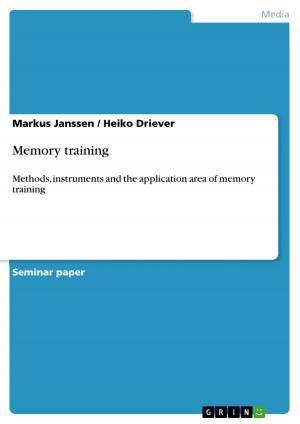The face of corruption in Kenya and the possible power of international civil society interference
Corruption in colonial and postcolonial Kenay as well as the possible influence of international civil society
Nonfiction, Social & Cultural Studies, Political Science, International, International Relations| Author: | Jürgen Schröder | ISBN: | 9783640425860 |
| Publisher: | GRIN Publishing | Publication: | September 9, 2009 |
| Imprint: | GRIN Publishing | Language: | English |
| Author: | Jürgen Schröder |
| ISBN: | 9783640425860 |
| Publisher: | GRIN Publishing |
| Publication: | September 9, 2009 |
| Imprint: | GRIN Publishing |
| Language: | English |
Scientific Essay from the year 2009 in the subject Politics - International Politics - Region: Africa, , language: English, abstract: The structure of Kenyan society is analyzed according to how it favours corruption and how this might be broken up by the intervention of the powers of the international civil society. There is growing consensus that the underlying cause for Africa's underdevelopment is a crisis of governance (Wanyama, 2002: 2), rather than the colonial heritage. Also for Kenya a lack of good governance is seen as one of the major causes of the slow pace of human development or even its decline, as in the 1980s and 1990s (UNDP, 2003: XIII). The Kenyan Human Development Index (HDI) - a composite of the indices of education attainment, life expectancy and standard of living - rose steady between 1975 and 1990 but then started to decline. The late 70s and early 80s saw not only a reasonable provision of basic services but also a quite good economic performance. The downward trend in the 90s was due to the non-growing economy, less access to basic services, corruption and an increased vulnerability of the population (UNDP, 2003: 9). Corruption is named as the most prominent factor of the problem as it endangers the success of any economic reforms already from the roots. Also authoritarian government is a decisive co-variable increasing the risks for development, as the political context already is a major obstacle for any project (Ake, 1996). This is valid not only for economical projects but also for those aiming at improving the human rights situation and strengthening democracy. This effect became also visible in Kenya in various electoral situations. Instead of strengthening the democratic climate the ruling factions relied on stirring up tribal rivalries, bringing about more division, hostility and intolerance to their nations instead of political progress (Nyong'o, 2002). The corrupt and authoritarian rule also results in unfair distribution of the resources available inside the country as well as of those obtained from the international community. The ruling elites are mainly interested only to secure their position by bringing their followers into the state-service and also foster their private wealth. So the bureaucracy is extending tremendously and also the funds are channeled outside the countries to private accounts. Additionally many development projects are just designed to satisfy certain groups like tribes or regions, but are not really useful in the overall context of the country. [...]
Scientific Essay from the year 2009 in the subject Politics - International Politics - Region: Africa, , language: English, abstract: The structure of Kenyan society is analyzed according to how it favours corruption and how this might be broken up by the intervention of the powers of the international civil society. There is growing consensus that the underlying cause for Africa's underdevelopment is a crisis of governance (Wanyama, 2002: 2), rather than the colonial heritage. Also for Kenya a lack of good governance is seen as one of the major causes of the slow pace of human development or even its decline, as in the 1980s and 1990s (UNDP, 2003: XIII). The Kenyan Human Development Index (HDI) - a composite of the indices of education attainment, life expectancy and standard of living - rose steady between 1975 and 1990 but then started to decline. The late 70s and early 80s saw not only a reasonable provision of basic services but also a quite good economic performance. The downward trend in the 90s was due to the non-growing economy, less access to basic services, corruption and an increased vulnerability of the population (UNDP, 2003: 9). Corruption is named as the most prominent factor of the problem as it endangers the success of any economic reforms already from the roots. Also authoritarian government is a decisive co-variable increasing the risks for development, as the political context already is a major obstacle for any project (Ake, 1996). This is valid not only for economical projects but also for those aiming at improving the human rights situation and strengthening democracy. This effect became also visible in Kenya in various electoral situations. Instead of strengthening the democratic climate the ruling factions relied on stirring up tribal rivalries, bringing about more division, hostility and intolerance to their nations instead of political progress (Nyong'o, 2002). The corrupt and authoritarian rule also results in unfair distribution of the resources available inside the country as well as of those obtained from the international community. The ruling elites are mainly interested only to secure their position by bringing their followers into the state-service and also foster their private wealth. So the bureaucracy is extending tremendously and also the funds are channeled outside the countries to private accounts. Additionally many development projects are just designed to satisfy certain groups like tribes or regions, but are not really useful in the overall context of the country. [...]















